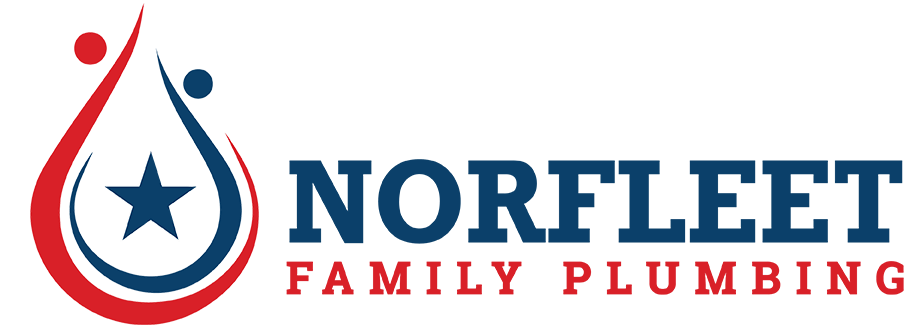How to Prevent Basement Flooding
Basement flooding is a frequent concern for homeowners, especially during heavy rains or snowmelt. Flooding can cause significant property damage, create health hazards, and lead to costly repairs.
Basement flooding is a frequent concern for homeowners, especially during heavy rains or snowmelt. Flooding can cause significant property damage, create health hazards, and lead to costly repairs. Taking proactive measures to limit basement flooding is essential for protecting the home and maintaining a safe living environment. Here are some effective strategies to keep basements dry and free from flooding.
Inspect and Maintain Gutters and Downspouts
Properly functioning gutters and downspouts are the first defense against basement flooding. Gutters should be routinely cleaned to remove leaves, debris, and dirt that can cause blockages. Downspouts should direct water five to ten feet from the house's foundation. Extenders or splash blocks can divert water further from the home. Verifying that gutters and downspouts are in good condition helps prevent water from pooling around the foundation and seeping into the basement.
Grade the Landscape Away from the Foundation
The landscape around the house should be graded to slope away from the foundation. This grading helps direct water away from the home rather than allowing it to accumulate near the foundation. Adding soil around the foundation and creating a gentle slope can be an effective way to improve drainage.
Install a Sump Pump
A sump pump is a vital apparatus for preventing basement flooding. It is placed in a sump pit, typically in the lowest part of the basement. The sump pump automatically activates when water levels in the pit rise, pumping the water out and away from the house. Typical sump pump maintenance is essential to verify it functions properly when needed.
Seal Cracks and Gaps in the Foundation
Cracks and gaps in the building's foundation can provide entry points for water, leading to basement flooding. Assess the foundation walls and floors for any signs of cracks or openings. Sealing these cracks with waterproof epoxy or masonry sealant can prevent water from infiltrating the basement. Professional plumbing experts can identify and repair significant structural issues, certifying the foundation remains watertight.
Install a French Drain
A French drain is a practical solution for managing groundwater and preventing basement flooding. It is composed of a perforated pipe buried in a gravel trench, letting water flow away from the foundation. French drains can be instituted around the perimeter of the house or in specific problem areas where water tends to accumulate.
Use Waterproofing Solutions
Applying waterproofing solutions to the basement walls and floors can make a barrier against water infiltration. Waterproofing paints and sealants can be used on interior surfaces, while exterior waterproofing involves excavating around the foundation and applying a waterproof membrane. These solutions help keep water out of the basement and protect against moisture-related issues such as mold and mildew. Professional plumbers can recommend and apply the most effective waterproofing treatments for the home's specific needs.
Maintain the Plumbing System
A well-maintained plumbing system is fundamental for preventing basement flooding caused by leaks or pipe bursts. Regular inspections by professional plumbers can identify potential issues, such as corroded pipes, faulty water heaters, or clogged drains. Prompt repairs and plumbing upgrades can prevent plumbing-related flooding and ensure the system operates efficiently. Backwater valves can protect the basement from sewage backups during heavy rains.
Install Window Well Covers
Basement window wells can be a source of water entry during heavy rains. Installing window well covers can prevent water, debris, and pests from entering the basement through the windows. Clear covers allow natural light to enter while providing a barrier against water. Regularly inspecting and maintaining window wells and covers verifies they keep water out effectively.
Use Dehumidifiers
High humidity levels in the basement can bestow moisture problems and potential flooding. Using dehumidifiers helps reduce humidity and prevent condensation on walls and floors. Maintaining a dry basement environment minimizes the risk of mold growth and structural damage. Dehumidifiers should be regularly emptied and cleaned to maintain optimal performance.
Trust Professional Plumbers
While homeowners can take many preventive measures, trusting professional plumbers for comprehensive inspections and repairs is essential. Professional plumbers have the expertise to diagnose potential flooding risks and recommend effective solutions. Regular maintenance and plumbing repairs by licensed plumbers verify the plumbing system remains in top condition, reducing the risk of basement flooding.
Preventing basement flooding requires proactive measures, routine maintenance, and professional expertise. By inspecting and maintaining gutters, grading the landscape, installing sump pumps and French drains, sealing cracks, and using waterproofing solutions, homeowners can protect their basements from flooding. Trusting professional plumbers for inspections and repairs guarantees that all aspects of the plumbing system are addressed, providing comfort and safeguarding the home. Implementing these strategies helps maintain a dry and healthy basement environment year-round.
If you need a licensed, bonded, experienced professional for plumbing, sewer camera inspection, or water heater installation, and water heater repair in Chandler, Gilbert, Mesa, Queen Creek, Ahwatukee or San Tan Valley call Norfleet Family Plumbing Heating and Air at 480-681-1764.

